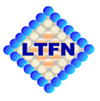NANO -ELECTRONICS -PHOTONICS -PHONONICS -PLASMONICS -ENERGY
The fields of the Plasmonics, Nanoelectronics, Clean Energy are some of the most rapidly growing sectors of the modern science and technology. Today, many resources and investments from government agencies, research institutes and local industries are devoted to the developments of materials, processes, instrumentation, and equipment for such devices and products.
The Workshop on Plasmonics – Nanoelectronics & Clean Energy has the goal of fostering research, collaboration and providing advanced training in Plasmonics & Nanoelectronics and Energy applications of Nanotechnology in physical, chemical and engineering sciences. It will serve as a forum for scientists, engineers and industrials from all around the world where there will be exchange of information and provision of access to the latest developments of several topics covering photonics, nanoelectronics, materials, photovoltaics inorganic, organic, dyes, hybrid, device structures, system integrations, manufacturing processes, characterization and monitoring, product applications and business opportunities.
Fundamentals from Electronics to Energy
- Topological Insulators
- Self organized molecules and systems
- Nano-optoelectronics
- Photonics
- Phononics
- Spintronics
- Molecular electronics and photonics
- Solar Power Technologies
- Nanotechnology for Solar Energy
- Nanotechnology for Thermal Solar
- Energy Harvesting and Storage
- Advances on Thermoelectric materials & devices
- Energy Storage
- Fuel Cells & Hydrogen
- Energy from Bio Sources
- Water Technologies
Materials
- 2D Semiconductors
- Nanoplasmonic Functional Materials (Development, Characterization, Applications)
- Organic Semiconductors
- Photovoltaics inorganic materials and concepts
- Metallic nanostructures for Plasmonics applications
Devices & Applications
- Nanoelectronics
- Organic and hybrid nanostructured devices
- Fuel cells (processing, testing, demonstration)
- Thin Film Photovoltaics
- LEDs: Display and lighting
- Plasmonics Devices
- Dye Sensitized Solar Cells
- MEMS, NEMS, Nanosensors and Biosensors
Processes & Characterisation
- Nanolithography
- Interface phenomenon in thin film deposition
- New properties at interfaces
- Characterisation techniques for nanophotonics: SNOM, EELS, time resolved etc
- Instrumentation, Nanometrology and Nanotools
For better Understanding, Theory & Computations (in conjunction with the other NN15 Workshops)
- Theory underlying materials' properties and processes at the nano-scale
- Modeling and computational approaches for the design of novel materials
- Theory and computational studies of the structural and mechanical properties
- Modern calculations for the prediction and characterization of physical properties (optical, electronic, phononic, etc.)
- Theoretical-computational modeling of devices or processes for the optimization of performance
- Latest developments in methodologies and computational science for nanotechnology
Commercialization in Nanoelectronics and Energy
Joined sessions with the Workshops 2, 3 will be organized.
WORKSHOP 1 COMMITTEE
- Prof. Silva R. P. (Chair), Nano-Electronics Centre, Advanced Technology Institute, Uni of Surrey, UK
- Dr. Kassavetis S. (co-Chair), Dept. of Materials Science & Eng., Uni of Ioannina, Greece
- Prof. Dimitriadis Ch., Dept of Physics, AUTh, Greece
- Dr. Fostiropoulos K., Organic Solar Cell Group, Helmholtz‐Zentrum Berlin, Germany
- Prof. Gioti M., LTFN, Dept of Physics, AUTh, Greece
- Prof. Horowitz G., CNTS, France
- Prof. Konofaos N., Dept of Informatics, AUTh, Greece
- Prof. Lidorikis E., Dept. of Materials Science & Eng., Uni of Ioannina, Greece
- Prof. Malliaras G., Dept Of Bioelectronics, CMP, ENSMSE, France


















